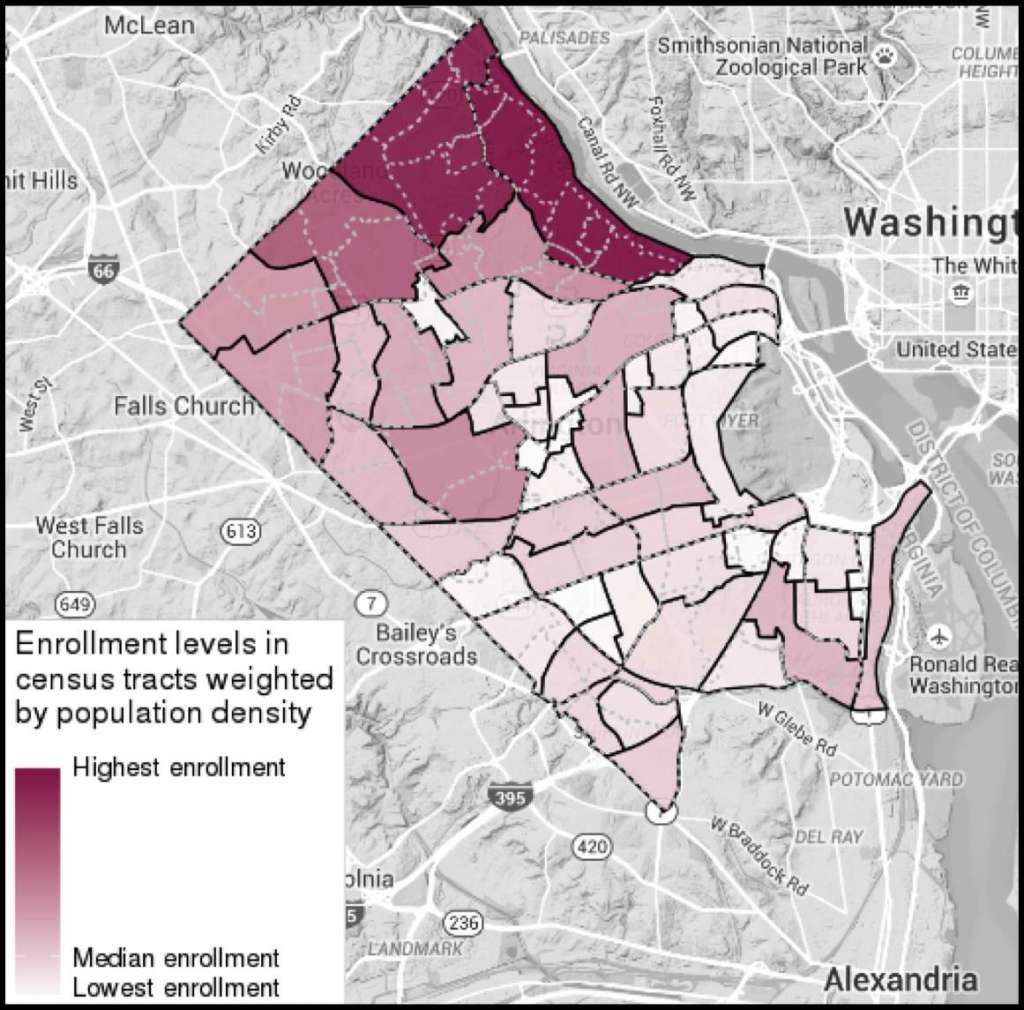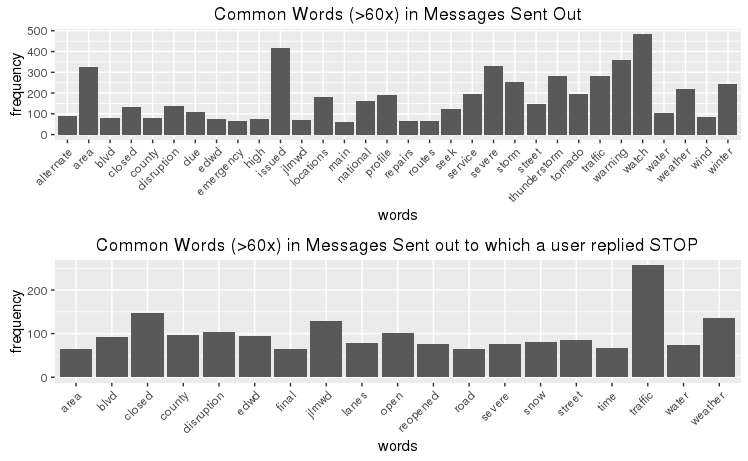This biweekly column is written and sponsored by the Arlington Office of Emergency Management.
How much notification is just right?
Hello? Are you out there?
If you’re like us, data makes you giddy. In the world of emergency management, it can feel like we’re sending messages out into  the world without ever knowing if they’re being reflected back like the hot summer sun off a tin roof or absorbed like a Harry Potter book. But add a little data, and “POOF!” we can start to see if we’re having an impact!
the world without ever knowing if they’re being reflected back like the hot summer sun off a tin roof or absorbed like a Harry Potter book. But add a little data, and “POOF!” we can start to see if we’re having an impact!
Getting information to those who live, work and play in Arlington before and during an emergency is critical. We use Arlington Alert to notify you of imminent threats, hazardous weather, traffic delays, government office closures and special events that may affect your life. But striking a balance between sending enough and too much information is a line our office walks on a daily basis.
This summer we teamed up with Virginia Tech’s Social and Decision Analytics Laboratory (SDAL) to learn more about how we’re reaching you and how we can we improve the alerting system.
Where are you, Arlington Alert Subscribers?
No surprises to us here — a majority of registered users are in the densest residential and commercial areas of the County.  Interestingly though, our highest pockets of users are in neighborhoods that have long term residents and experience little turnover.
Interestingly though, our highest pockets of users are in neighborhoods that have long term residents and experience little turnover.
At first glance, this doesn’t tell us much — we’d expect to see more users in areas where there are more people. Digging a little deeper, however, it shows success from the Run-Hide-Fight trainings and outreach we’ve conducted in these areas of the county.
We also saw where our lowest enrollments were, and for the past month we have targeted many outreach activities in those communities. As a result, we have been able to increase enrollment in neighborhoods with lower enrollment rates.
Finding our Message Champions
We know that every single person who works, plays and lives in Arlington will not register for Arlington Alert. In order to reach  the greatest number of people, we need Message Champions: those who will promote Arlington Alert and share our messages with their networks to help get critical information into the community.
the greatest number of people, we need Message Champions: those who will promote Arlington Alert and share our messages with their networks to help get critical information into the community.
Using personality traits, professions and communities, a psychologist associated with the study helped to build a profile of people who would be our best Champions. She found that those who work in education, training, counseling, facility management, healthcare, restaurants, entertainment and sports management are most likely to share messages in an emergency (note to the professionals above: expect to hear from us about how you can help us share our message during an emergency!)
Can We Still Be Friends?
One too many messages, and we all know what happens: “STOP MESSAGE!” It’s a delicate balance of giving you the information you want and need, but not overloading you with too much.
The study found that a majority of un-enrollments followed road closure and “Final” messages sent to notify you that streets had been re-opened (note: you can select to which type of alerts you would like to receive, such as weather or emergency alerts, and eliminate traffic alerts if they don’t apply to you). From this, we’re taking a look at how and when we send messages to better communicate with you.
Making the Reach
So we’re asking for your feedback and help in our continued efforts to improve the system. Text “Arlington Alert” to 703-454-8608 to tell us how you’re using the system (or not using the system), and what we can do to improve it, or even volunteer to serve on a focus group!


